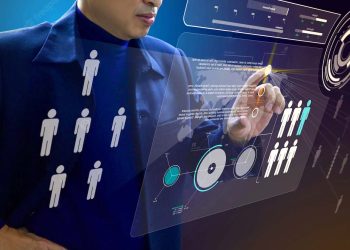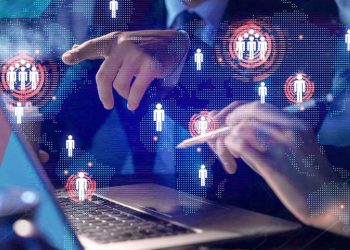HR technology has enabled businesses to adapt to the challenges created by COVID-19.
At the time, when remote working was the only option businesses were left with, HR technologies helped them remain functional at all levels, including – recruitment process, employee management, and engagement processes. As the world continues to scramble for ways to outsmart the malicious virus, the traditional management approach may not address the new complexities and challenges. New innovations and HR tech trends will help HR teams steer through the murky waters of the COVID-19 crisis.
AI to Lessen Admin Burden
Artificial Intelligence can help various HR functionalities like recruiting and training employees, detecting anomalies, managing leaves, reviewing performance, resolving queries, and dealing with absenteeism, and initiating retirements. AI can streamline time-heavy and redundant tasks and reduce HR teams’ burden by quickly surfing hundreds of resumes and compiling and analyzing survey data. Also, with AI, there is no chance of human bias or error while evaluating candidates.
But for AI to be effective, it is important to train the systems with the right data and algorithms.
Robotic Process Automation (RPA) to Increase Productivity
Robotic Process Automation uses features, such as – natural language processing (NPL), machine learning (ML), and Artificial Intelligence (AI), to help HR teams increase productivity. Several HR systems are using Chabot to provide answers to employee inquiries. It is predicted that 50% of companies will have HR Chabot by 2022.
Below are some applications of RPA in HR processes:
- They can be used in strategic processes, including workforce planning management, organization design, employee satisfaction, implementation of HR policies, etc.
- They can help in talent management, including recruitment, onboarding, employee training, and success planning.
- They can help in operation management tasks, such as data administration, management of payrolls, employee relations, etc.
Wellness and Engagement Tools for Employees
Given the pandemic situation, several employers are providing financial and employee wellness apps to their employees to help them withstand the situation. Some of the apps include budgeting apps, wearable apps for health, fitness trackers, and more. Some employers are providing access to platforms for child care too.
Many apps facilitate employees to handle HR functions all by themselves, enabling HR teams to focus on employees more than processes.
Cloud-Computing to Transform HR Functions
Cloud computing is capable of transforming the whole HR function. Some of the most important trends are:
- Omnichannel models
- Agile workforce
- The Internet of Things
- Data Security
Cloud computing streamlines HR functions and benefits organizations that have implemented them.
For example, Cloud communication fills the missing links in the communication, facilitating managers to communicate, review or provide feedback via a single platform.
Data can be transformed into information at a faster rate.
Humongous data can be stored using the cloud. Also, cloud computing provides more reliable data security measures.
Augmented Reality and Virtual Reality for Recruitment and Onboarding
AR and VR can be used in the recruiting process by setting up a simulated environment to test candidates’ specific skills. During onboarding, a virtual tour of the office can be given using these technologies. They can help businesses improve efficiency, save costs and make the recruitment process a lot smoother. They also help the HR professionals to identify key areas of improvement to make the recruitment process better.
Blockchain to Keep Employee Data Secure
With its characteristic features such as – decentralization, immutability, transparency, security, and trust, blockchain technology can help organizations handle sensitive employee data and prevent internal and external hacks of sensitive records.
Blockchain can enable HR teams to easily verify the qualifications of the prospects and make background checks. Further, the blockchain ledger can help track transactions and assist in automating taxes and reimbursement systems.
Wrap Up
Technology has enabled businesses to develop readiness and resilience. Despite all the negativity, the pandemic has taught businesses how technology can be leveraged to maintain workforces and run business processes smoothly.







